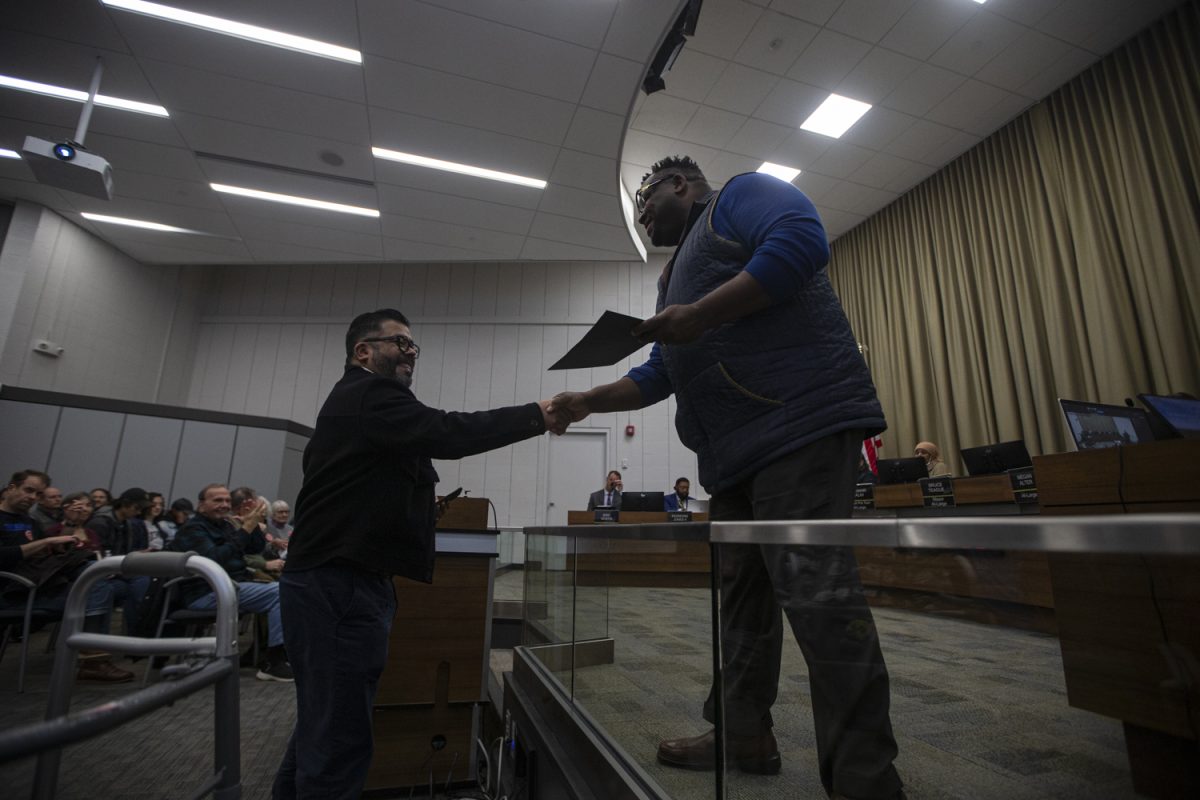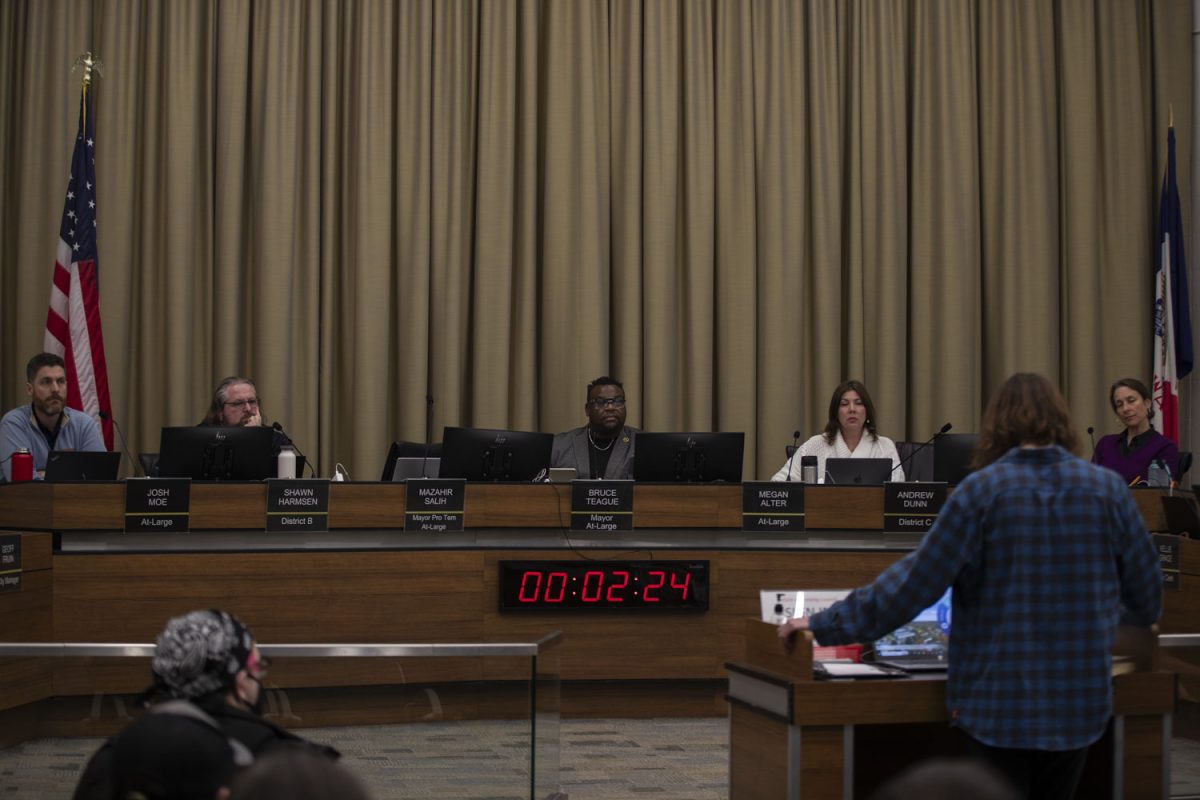Carl Klaus and his wife always got a big Christmas tree. They celebrated the holiday with a tree-trimming party.
However, since the UI professor emeritus’ wife, Kate, died in November 2002 of a cerebral hemorrhage, Klaus said, Christmas isn’t quite so meaningful to him. That sentiment is one that befalls many individuals this time of year, and those who feel them search for ways to cope.
“The holidays were hard because Kate loved them,” Klaus said. “She always celebrated them with zest, gusto and special meals. The holidays were always very important for her and for me.”
Around a week after his wife’s death, on the Saturday following Thanksgiving, the 77-year-old Klaus sat alone for the first time in his TV room. He laid his hand on the side of the chair and felt a pad of paper on which Kate often wrote. Soon after, Klaus found “a terrific urge” to write letters to his late wife.
“Once I started, it was a compulsion that drove me day in and day out for a year,” he said. “If I stopped writing her, I would lose her completely.”
Nearly a year after he completed his writing, he began selecting letters that would be used in his now-published book called Letters to Kate.
Now, Klaus’ method of coping is used as an example in a workshop called “Handling the Holidays,” a free program through Iowa City Hospice.
Keila Naparstek, the bereavement outreach coordinator at the hospice, led this year’s session, which focused on three essential goals: offering guidance on how to proceed through the holidays, validating strong emotions, and offering specific tips and ideas for making it through the coming weeks.
“People wonder if there is something wrong with them,” she said. “So to come to a program like this where they [learn] that everybody grieves differently, there is no normal way to grieve, there is no right way or wrong way.”
Naparstek said the holidays are hard on people even when they’re not going through a significant loss. She recommended these events for people even if they are not coping, she said, because everyone experiences anxiety.
Louise Young, 74, copes yearly with the death of her father and husband.
“There’s very much good about hospice,” the Iowa City native said. “There are several different ways to help people, and this one is wise and sensible.”
Iowa City Hospice, which will enter its 26th year of service to a seven-county area, provides a number of community programs in addition to “Handling the Holidays.” The organization also has a number of publications and resources for individuals dealing with grief and loss.
Officials from Mental Health America said depression and anxiety are found in greater numbers during the holidays and after the first of the year while many plan their objectives for the coming year.
At the UI, counselors may sit down and talk one-on-one with a student who might have difficulty coping with the holidays.
Sam Cochran, the director of UI Counseling Service, said they typically see a slight increase in students using the free service, though part of it may be due to the stress of final exams.
“The one thing we are mindful of is that grieving and coping aren’t psychological problems,” Cochran said. “Lots of people go through this. They’re normal human experiences.”






